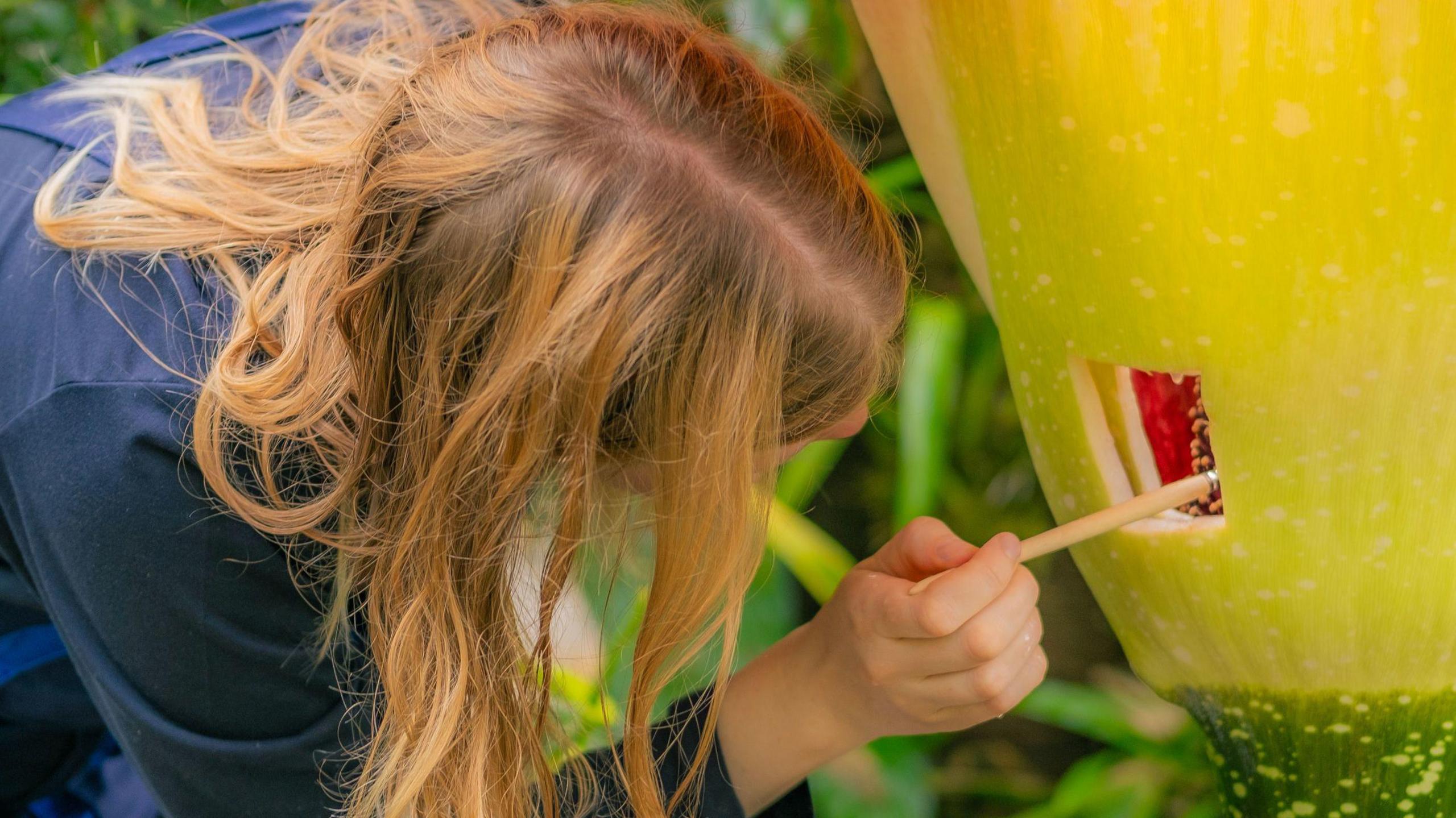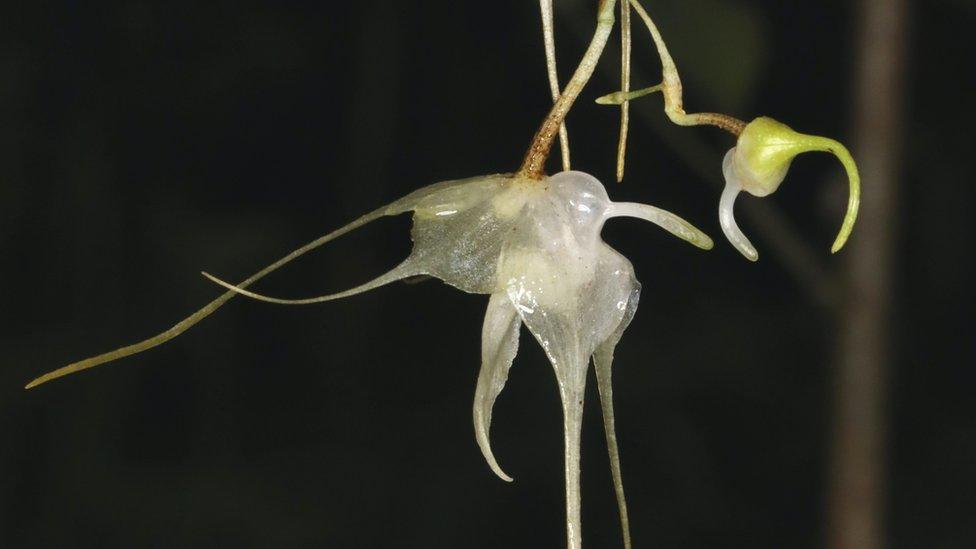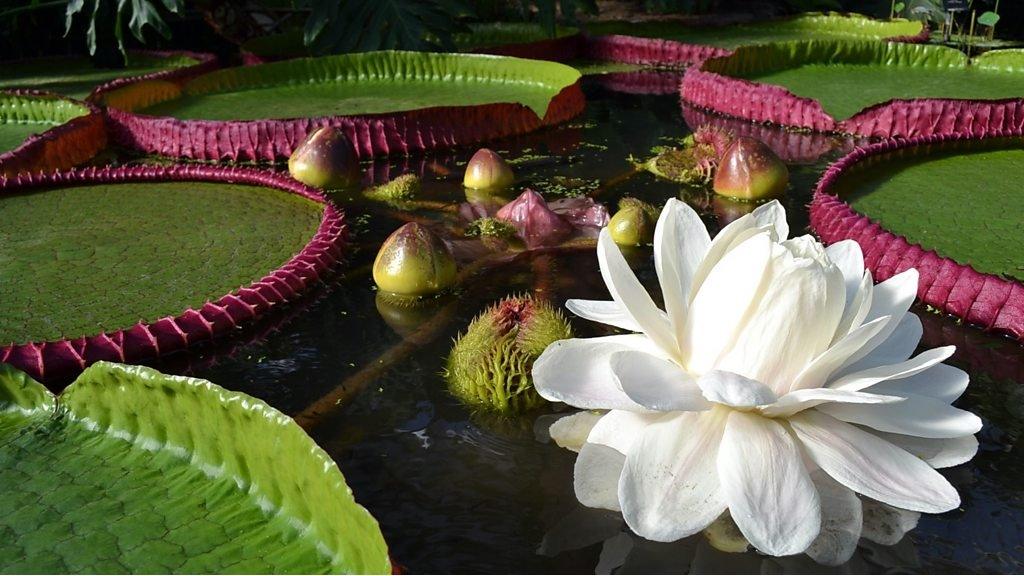Queues gather at Kew to sniff 'corpse flower' stink
Watch: Kew Gardens 'corpse flower' blooms
- Published
Visitors to Kew Gardens are still able to catch a glimpse - and whiff - of its titan arum plant, otherwise known as the corpse flower, after it burst into bloom on Tuesday, external.
The flower, which is said to stink like rotting flesh, usually only emerges once every two years.
The famous south-west London botanic gardens says it often attracts thousands of visitors whenever the titan arum flowers, who hope to experience the "magnificent sight and disgusting stench".
The attraction extended its opening hours on Tuesday, but told the BBC the bloom would likely only last until the end of Wednesday.

Queues formed inside the glasshouse of people wanting to sniff the stinking flower
The plant has the world’s largest flowering structure, which can reach almost 10ft (3m) tall, according to Kew.
Its flower is coloured like a piece of meat and its spike produces heat, which Kew said helps its smell travel, meaning it can attract pollinators from up to half a mile away.
Science journalist and presenter of BBC Radio 4’s Inside Science Marnie Chesterton, who visited the "hot and humid" glasshouse on Wednesday, said there was a "buzz of excitement from the crowds".
She explained that the plant had "hit peak stink yesterday, when you could smell it as soon as you opened the hothouse door", but was now "more subtle, apparently".
Describing the stench, she said: "When I put my face up close to the flower, I got a whiff of unwashed lavatory with strong undertones of something that went off at the back of the fridge. Definitely rotting."

A team of botanical horticulturists have been hand pollinating the Titan arum plant at Kew Gardens
The plant only grows in the rainforests of Sumatra, but is endangered in the wild due to deforestation and land degradation.
Visitors can find it inside the Princess of Wales Conservatory on site.
Listen to Marnie Chesterton's report looking at the science of stinky plants on Inside Science on BBC Radio 4 at 16:30 BST on Thursday or listen on BBC Sounds
Follow BBC London on Facebook, external, X, external and Instagram, external. Send your story ideas to hellobbclondon@bbc.co.uk, external
Related topics
- Published11 January 2024

- Published4 July 2022
